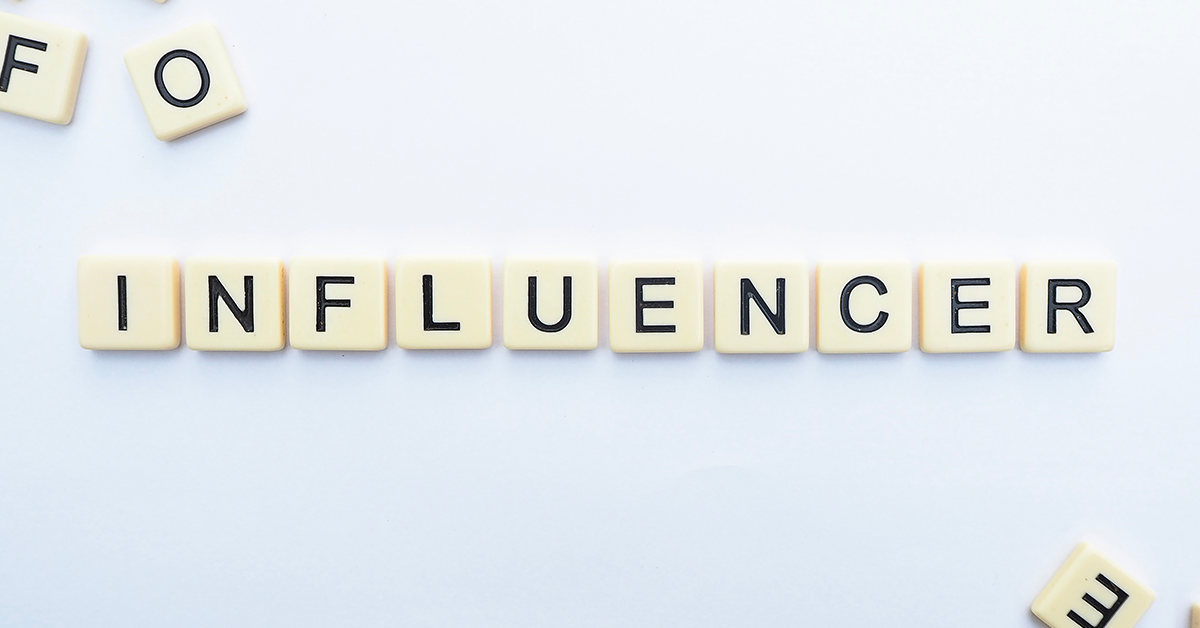
12 Jun Influencers, who are they, and why do they matter? A new form of marketing your trademark
Different figures have appeared in the last few years, known as streamers, content creators, Youtubers, Tiktokers, etc. broadly referred to as influencers but, who are these influencers, and why do they matter so much?
Influencers engage audiences that follow them through all over the social media channels. They can become powerful brand advocates by raising awareness for brands and make a product or service relevant to their followers. In a world where likes and follows quickly spread on social media, influencers are those whose opinions are highly valued.
Influencers are inevitably linked to social media channels. This makes us raise the following questions: Which social media channels are most important when trying to sell a product? Does it depend on what you are trying to sell? Or does it depend on the different consumers or target? It cannot be denied that even if all social media channels share certain similarities, they also work in a different way. As a mere comparison, Instagram works with very short videos and providing brief information of the brands whereas Youtube works in a totally different manner, as it offers longer videos and gives far more elaborate information concerning the marks and the goods and services. However, their aim is certainly the same: to sell as many products or offer as many services as possible of a certain brand.
The figure of the influencer has had a great impact on several fields, making nowadays Influencer marketing a mainstream form of online marketing.
Influencer marketing is a hybrid of old and new marketing tools. It takes the idea of celebrity support and integrates it into a modern content marketing campaign. A lot of campaigns are now collaborations between brands and influencers, putting aside celebrities.
And why are influencers chosen over celebrities? The reasons are simple: influencers act as tastemakers and create desire for products and, needless to say, their cachet is much lower.
Influencer marketing works because of the high amount of trust that influencers have built up and recommendations from them serve as a form of social proof to the brand’s customers, in other words, they are a form of -the so called- word-of-mouth marketing. In fact, consumers identify word-of-mouth as a key factor of purchase decisions.
Besides, a great number of influencers are now also making their own trademarks offering their own products and or services.
But not everything is as easy as it seems because influencer marketing can also be tricky and a campaign could certainly go against you. If, for example, using the wrong influencer (a figure that does not match the line of your business), ruling out Micro-Influencers (as they can engage more people since they are nearer the consumers) and last, but most importantly, not being transparent when providing the information through “your influencer”.
The influencer world has developed rapidly and agencies which serve as mediators between them, and companies have also emerged. This certainly helps companies to determine the clauses of contracts to tie everything up: the terms of the collaboration, including the content or product to be created, the compensation to be received, legal protection for all parties, non-disclosure and confidentiality clauses as well as brand campaign guidelines.
The existence of this new figure is creating the need of regulating their activities and also the need of protecting consumers, especially the younger ones (who are nowadays the main consumers of social media).
In Spain, the new General Law on Audiovisual Communication, best known as the law of influencers, was approved last year. The regulation replaces the previous law published in 2010 and lays down a number of principles to be respected and obligations to be fulfilled. The regulation aims to ensure that sponsored posts are clearly identifiable and that consumers are adequately informed about the nature of the posts.
As can be imagined, the Law generated all kinds of reactions- both good and bad- in the digital community.
Another example, of a recent “Influencer law”, is in France where it has been adopted a Bill to regulate social media influencers‘ activities to try to restrain the promotion of dangerous and harmful products and trends.
The influencer world is here to stay. However, being such a new figure, there are still a lot of issues to understand and consequently, to regulate.
I was pleased to share all these issues in my table topic Influencers and Youtubers: What to Consider when Marketing Your Brand on social media at the recent INTA in Singapore. We certainly learnt how to keep our followers up!.
Author: Isabela Robledo McClymont, Lawyer at CURELL SUÑOL.
Photo by Diggity Marketing on Unsplash.com.



